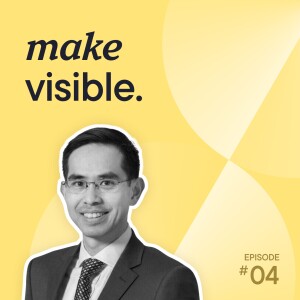
Monday Nov 04, 2024
#4 Balancing the autonomic nervous system with Dr Boon Lim (Part 2)
In this week’s episode renowned cardiologist Dr. Boon Lim returns for Part 2 of the conversation with Emily Kate Stephens, presenting three clarifying analogies to represent a wider view of the impact of acute stress on the autonomic nervous system, and its role in complex chronic illness.
Dr. Boon Lim uses the poem The Blind Man and the Elephant to exemplify the need for us and our medical practioners to approach chronic illness by looking at the body and mind as a whole rather than individual parts. He describes the body affected by Long Covid as a factory for which we need to find the off-switch. And he sets out the image of a gazelle in long grass: constantly on high alert anticipating attack, as a way for us to understand the way in which our bodies have been pushed into chronic stress.
Dr Lim explains the way in which returning to homeostasis requires balancing of our sympathetic and parasympathetic systems and the consequences of imbalance. He calls for us to consider the idea of stress reduction for alleviating some of the negative consequences of post-viral illness and we discuss the power of the breath, mindfulness and acceptance, not simply as a way to calm the mind, but to influence the entire body and nervous system.
Dr Lim is able to demonstrate the scientific basis for what some might consider to be more esoteric ideas, discussing the ENO’s Breathe Programme, which carried out one of the first RCTs performed in Long Covid, alongside the way in which HRV monitoring can show the changes driven by such strategies. Despite his heavily medical credentials, Dr Lim endeavours to grasp the mental and emotional aspects of chronic illness, whilst highlighting the importance of collaboration between patients and healthcare providers to achieve progress.
The books discussed in this episode were:
Johann Hari's - "Stolen Focus: Why You Can't Pay Attention"
James Nestor's - "Breath: The New Science of a Lost Art"
No comments yet. Be the first to say something!